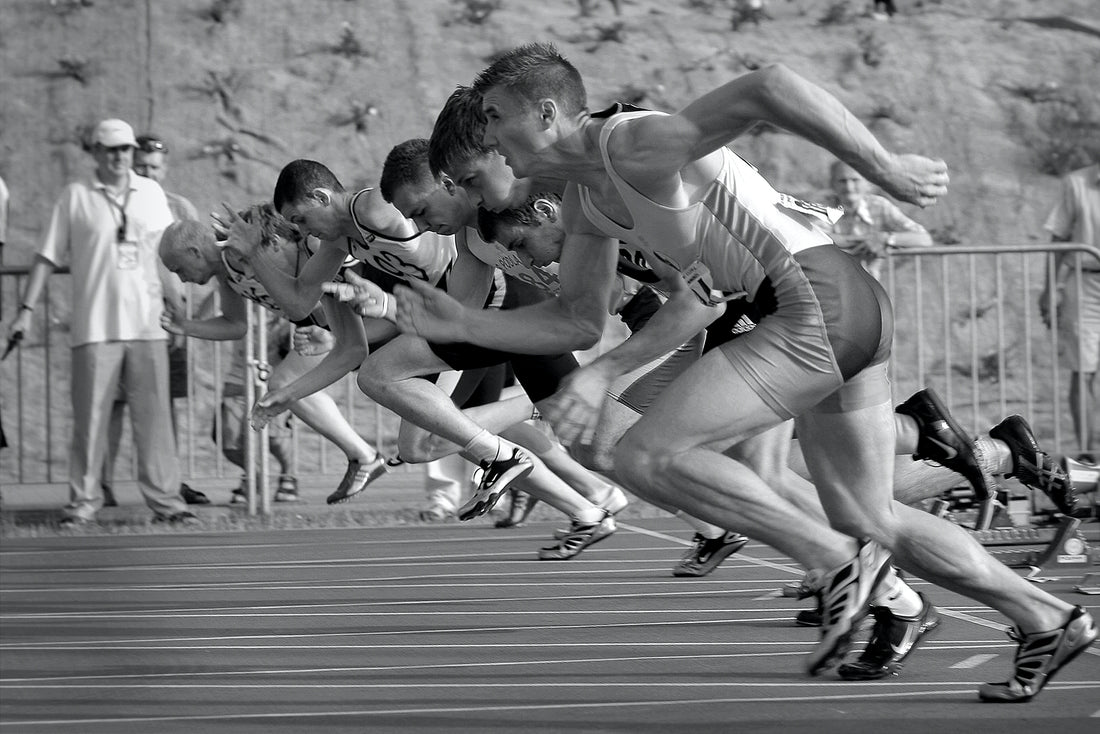5 Mistakes Runners Make When Training For A Race

It was a huge weekend just gone for the distance running world with the Melbourne marathon, Eliud Kipchoge breaking the 2-hour barrier in Vienna, and Brigid Kosgei setting a new women’s world record in Chicago. If you are finding the world stage of distance running inspiring then you are not alone, the growth of fun runs and trail runs in the last few years has certainly been booming.

This is a fantastic thing to see obviously but unfortunately many runners sign up for events not knowing what they are getting themselves into or what it takes to finish a race well. A lot of frustration and injuries can be prevented by a well-executed plan. So here are 5 mistakes you want to avoid when preparing for a big race:
Not allowing enough time to train
It’s important to look at the big picture when preparing for a race. If you haven’t been doing much running in the lead up then it will take a few months to get the body back in shape. If you have been running regularly, it will take less time but you will still need to make your training specific to that event. Leaving it 2 or 3 weeks to start training for a race is definitely not enough time to get ready. While you may be able to suffer through and get to the end, you’ll have the best experience by giving yourself plenty of time to prepare.
Increasing the milage too soon
Our bodies are wonderfully efficient at activities that we do repeatedly however it doesn’t cope well with rapid changes in load. Not all but most running injuries will occur from an unexpected change in training load. Increasing the number of kms you run in a week is once such unexpected change and can lead to injuries caused by the inability to absorb force when landing. How much is too much? That’s a very difficult question to answer, some have tried to come up with various rules to abide by all of which have fairly low evidence. The answer depends on your own training history, body weight and shape, biomechanics, gender, and genetics. We do know although it is necessary to increase your mileage to get fitter it should be done slowly to minimise injury risk.

Doing too much speed work
Most runners are fairly familiar with the idea that increasing the number of kms they run will injure them but often neglect to think about the amount of fast running they are doing. Certain structures in your body such as tendons are at greater risk of injury during high speed running. Obviously, if you want to run faster then you have to practice running faster but the challenge is to do the right amount to make you fit without causing injury.
Not giving the body enough time to recover
One of the most important aspects of training is the recovery. It may sound backwards but you actually gain fitness from rest! In the days following a hard effort your body takes on water, food, and sleep to rebuild and make you more resilient next time. If you’re not taking care of your body in between runs then you’re not giving yourself the best chance at getting fit. Additionally, it’s not just the stress of running that you need to consider; if you have a stressful job, do a lot of gardening on weekends, or busy running errands that all accumulates to a level of stress that your body needs to recover from too.
Running too fast
The final mistake runners make is to push themselves too hard all the time. Again the logic makes sense in a way because if you want to run faster then you should practice running faster. However, you may be interested to hear that while this may get the job done just fine there is a safer way to go about it. Most elite long-distance runners would run about 80% of their total mileage at a pace where they can hold a conversation. 80% is a staggering amount! What this means is they are saving their legs for the really hard runs, there’s a common phrase that goes “let your easy runs be easy and your hard runs be hard”. If you push yourself too hard on every run you’ll most likely be too tired to run fast when you actually need to.
If you need any help in setting yourself up to run a successful race, book in to see one of our physios who can help you get to the start line fully prepared.
